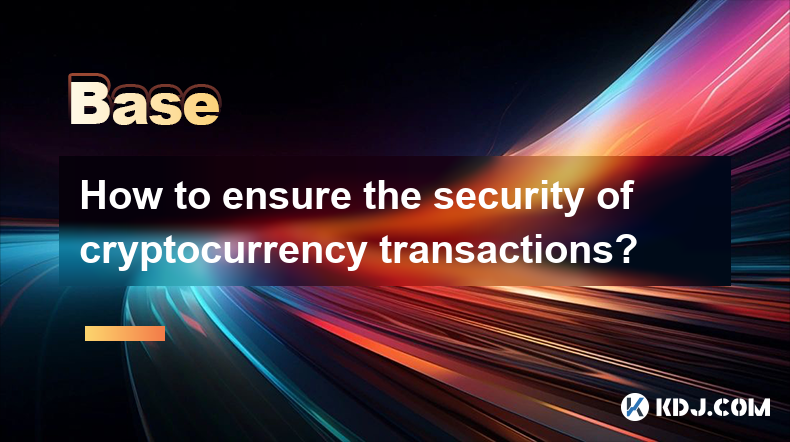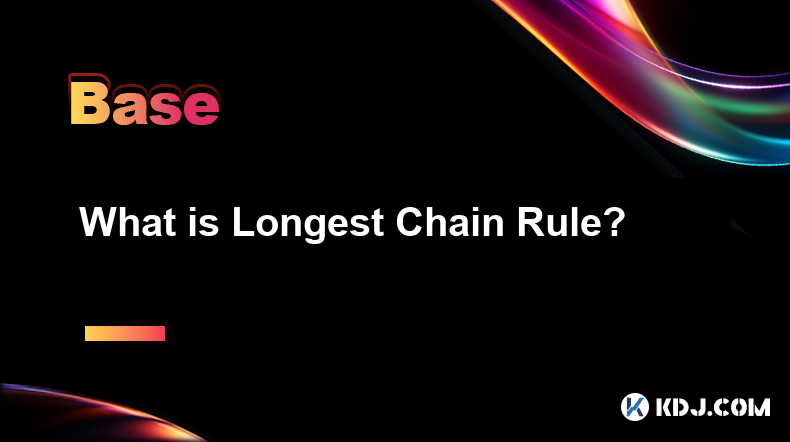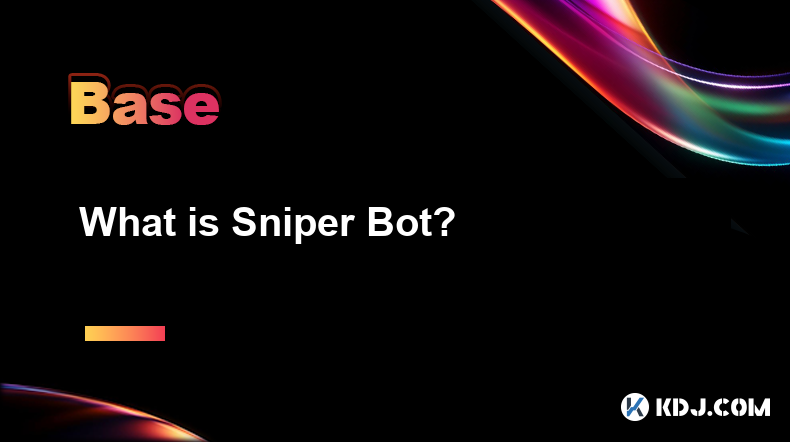-
 Bitcoin
Bitcoin $79,309.9469
5.46% -
 Ethereum
Ethereum $1,575.4794
6.76% -
 Tether USDt
Tether USDt $0.9996
0.03% -
 XRP
XRP $1.8684
10.75% -
 BNB
BNB $559.1592
4.86% -
 USDC
USDC $0.9998
-0.02% -
 Solana
Solana $108.9193
9.75% -
 Dogecoin
Dogecoin $0.1493
10.49% -
 TRON
TRON $0.2326
3.85% -
 Cardano
Cardano $0.5862
10.61% -
 UNUS SED LEO
UNUS SED LEO $8.9694
0.72% -
 Toncoin
Toncoin $3.1094
5.06% -
 Chainlink
Chainlink $11.6110
10.41% -
 Avalanche
Avalanche $17.1493
12.22% -
 Stellar
Stellar $0.2310
12.64% -
 Shiba Inu
Shiba Inu $0.0...01132
6.17% -
 Hedera
Hedera $0.1578
22.08% -
 Sui
Sui $2.0151
12.13% -
 MANTRA
MANTRA $6.2854
6.64% -
 Polkadot
Polkadot $3.5990
7.58% -
 Bitcoin Cash
Bitcoin Cash $276.8413
7.33% -
 Litecoin
Litecoin $71.4393
9.84% -
 Dai
Dai $1.0000
0.01% -
 Ethena USDe
Ethena USDe $0.9990
0.07% -
 Bitget Token
Bitget Token $4.1736
10.38% -
 Pi
Pi $0.5864
5.86% -
 Hyperliquid
Hyperliquid $11.9119
22.51% -
 Monero
Monero $207.4588
8.04% -
 Uniswap
Uniswap $5.1898
7.27% -
 OKB
OKB $52.1447
2.68%
How to ensure the security of cryptocurrency transactions?
Cryptocurrency transactions are prone to security threats like phishing and hacks; understanding and mitigating these risks is crucial for safeguarding your investments.
Apr 07, 2025 at 01:28 am

Understanding the Risks
Cryptocurrency transactions, while offering numerous advantages, are susceptible to various security threats. Understanding these risks is the first step towards mitigating them. These threats range from phishing scams and malware to exchange hacks and private key compromises. The decentralized nature of cryptocurrencies, while beneficial for censorship resistance, also means users bear the primary responsibility for their own security. Negligence can lead to significant financial losses. Therefore, proactive security measures are crucial.
Protecting Your Private Keys: The Foundation of Security
Your private keys are the passwords to your cryptocurrency. Never share your private keys with anyone. Treat them like your bank PIN – absolute secrecy is paramount. Write them down securely, store them offline, or use a hardware wallet. Avoid storing them digitally on your computer or phone unless using a robust, encrypted password manager. Compromised private keys mean complete loss of control over your funds. Consider using a reputable key management system to add another layer of protection.
Choosing Secure Wallets: Different Options, Different Security Levels
The choice of wallet significantly impacts security. Hardware wallets offer the highest level of security as they store your private keys offline, protected from online threats. Software wallets, while convenient, require strong passwords and vigilant security practices. Paper wallets, though secure offline, require meticulous handling to prevent damage or loss. Cloud-based wallets should be used with extreme caution, carefully assessing the provider's security measures. Choose a wallet that best suits your needs and risk tolerance.
Recognizing and Avoiding Phishing Scams
Phishing is a common tactic used to steal cryptocurrency. Never click on suspicious links or download attachments from unknown sources. Legitimate cryptocurrency platforms will never ask for your private keys or seed phrases via email or text message. Verify the authenticity of any communication by directly contacting the platform through official channels. Be wary of unsolicited offers or promises of high returns – these are often red flags for scams.
Using Strong and Unique Passwords
Strong passwords are fundamental to online security, and cryptocurrency is no exception. Use long, complex passwords that combine uppercase and lowercase letters, numbers, and symbols. Avoid using easily guessable passwords like birthdays or pet names. Consider using a password manager to generate and securely store strong, unique passwords for each of your accounts. Regularly update your passwords to enhance security.
Keeping Your Software Updated
Keeping your operating system, antivirus software, and wallet software updated is crucial. Software updates often include security patches that address vulnerabilities that hackers could exploit. Regularly check for updates and install them promptly. Outdated software is a significant security risk. Ensure your antivirus software is active and up-to-date to protect against malware.
Verifying Transaction Details Before Confirmation
Before confirming any cryptocurrency transaction, carefully review all the details. Double-check the recipient's address, the amount, and the transaction fee. A simple mistake can result in irreversible loss of funds. Take your time and verify everything before clicking the "send" button. Consider using a second device to verify the transaction details for an added layer of security.
Using Two-Factor Authentication (2FA)
Two-factor authentication adds an extra layer of security to your accounts. Enable 2FA wherever possible. This usually involves a code sent to your phone or email, in addition to your password. Even if someone obtains your password, they will still need access to your phone or email to complete the login process. This significantly reduces the risk of unauthorized access.
Educating Yourself on Cryptocurrency Security Best Practices
Continuously learning about cryptocurrency security is essential. Stay informed about emerging threats and best practices. Follow reputable sources of information and participate in online communities to learn from others' experiences. The cryptocurrency landscape is constantly evolving, so ongoing education is crucial to staying ahead of potential threats.
Diversifying Your Holdings and Storage
Don't put all your eggs in one basket. Diversify your cryptocurrency holdings across different wallets and exchanges. This reduces the impact of a single security breach. If one wallet or exchange is compromised, you won't lose all your funds. This strategy helps mitigate risk and protect your investment.
Regularly Backing Up Your Wallets
Regular backups are crucial for data recovery in case of hardware failure or loss. Back up your wallet seed phrase or private keys regularly and store them securely in multiple locations. This ensures you can recover your funds if your primary wallet is lost or damaged. Treat your backups with the same level of security as your primary wallet.
Frequently Asked Questions
Q: What is a hardware wallet and why is it considered more secure?
A: A hardware wallet is a physical device that stores your private keys offline, making it significantly more secure than software wallets which are vulnerable to malware and hacking.
Q: What should I do if I suspect I've been a victim of a phishing scam?
A: Immediately change your passwords, contact your exchange or wallet provider, and report the incident to the appropriate authorities.
Q: How often should I update my wallet software?
A: Check for updates regularly, ideally as soon as they are released, as updates often include crucial security patches.
Q: What is the best way to store my private keys?
A: The safest method is to write them down on paper and store them in a secure, offline location. Hardware wallets also offer excellent protection. Never store them digitally on your computer or phone.
Q: Are cloud-based wallets safe?
A: Cloud-based wallets can be convenient, but they carry inherent risks as they are susceptible to hacking and data breaches. Use them cautiously and only with reputable providers with strong security measures.
Q: What is 2FA and why is it important?
A: Two-Factor Authentication (2FA) adds an extra layer of security by requiring a second verification method, such as a code sent to your phone, in addition to your password. This significantly reduces the risk of unauthorized access.
Disclaimer:info@kdj.com
The information provided is not trading advice. kdj.com does not assume any responsibility for any investments made based on the information provided in this article. Cryptocurrencies are highly volatile and it is highly recommended that you invest with caution after thorough research!
If you believe that the content used on this website infringes your copyright, please contact us immediately (info@kdj.com) and we will delete it promptly.
- Wyoming Is Launching a Stablecoin Later This Year, Which Could Be the First Issued by a Public Entity in the U.S.
- 2025-04-08 14:20:12
- BNB vs SOL: Which Crypto to Invest in?
- 2025-04-08 14:20:12
- Big News for XRP as Ripple CEO Meets with Trump and Sparks Intrigue Within the Cryptocurrency Community Hinting at Promising Developments.
- 2025-04-08 14:15:12
- Interactive Brokers Expands Cryptocurrency Portfolio by Adding Four Major Altcoins
- 2025-04-08 14:15:12
- US stocks fall on Wednesday, dragged down by a sharp sell-off in tech stocks, as renewed trade war concerns rattle investors
- 2025-04-08 14:10:12
- Just 24 Hours After Adding Its Name to the Roster of Companies Pursuing a Bitcoin (BTC) Treasury Strategy, GameStop (GME) — Led by Its CEO Ryan Cohen — Is Also Adding Its Name to Those Firms Issuing Convertible Debt to Raise Funds for BTC Acquisition
- 2025-04-08 14:10:12
Related knowledge

What is Serenity?
Apr 08,2025 at 02:00pm
Serenity, also known as Ethereum 2.0, represents a major upgrade to the Ethereum blockchain. This ambitious project aims to address the scalability, security, and sustainability issues faced by the current Ethereum network. Serenity is not a single update but a series of upgrades that will transform Ethereum into a more efficient and robust platform. Th...

What is Finality Gadget?
Apr 08,2025 at 04:14am
The Finality Gadget is a crucial component in the architecture of certain blockchain networks, particularly those that utilize a hybrid consensus mechanism. It plays a pivotal role in ensuring the finality of transactions, which means that once a transaction is confirmed, it cannot be altered or reversed. This article delves into the intricacies of the ...

What is Longest Chain Rule?
Apr 08,2025 at 07:50am
The Longest Chain Rule is a fundamental concept in blockchain technology, particularly in the context of cryptocurrencies like Bitcoin. This rule is crucial for maintaining the integrity and security of the blockchain network. In essence, the Longest Chain Rule dictates that the valid blockchain is the one with the most cumulative proof-of-work, which i...

What is Orphan Block?
Apr 08,2025 at 05:00am
What is an Orphan Block?In the world of cryptocurrencies, particularly in blockchain technology, the term orphan block is frequently encountered. An orphan block is a block that has been mined and added to the blockchain but is later discarded or replaced by another block. This phenomenon occurs due to the decentralized nature of blockchain networks, wh...

What is Mempool?
Apr 08,2025 at 12:36pm
What is Mempool?In the world of cryptocurrencies, particularly Bitcoin, the term Mempool is frequently mentioned. But what exactly is a Mempool, and why is it important? A Mempool, short for memory pool, is a critical component of the blockchain network that serves as a temporary storage area for unconfirmed transactions. When a user initiates a transac...

What is Sniper Bot?
Apr 07,2025 at 10:43pm
A Sniper Bot is a type of automated trading software used within the cryptocurrency market to execute trades at optimal times, often milliseconds before other traders. These bots are designed to take advantage of new token listings, price fluctuations, and other market opportunities to buy or sell assets quickly and efficiently. The primary goal of a Sn...

What is Serenity?
Apr 08,2025 at 02:00pm
Serenity, also known as Ethereum 2.0, represents a major upgrade to the Ethereum blockchain. This ambitious project aims to address the scalability, security, and sustainability issues faced by the current Ethereum network. Serenity is not a single update but a series of upgrades that will transform Ethereum into a more efficient and robust platform. Th...

What is Finality Gadget?
Apr 08,2025 at 04:14am
The Finality Gadget is a crucial component in the architecture of certain blockchain networks, particularly those that utilize a hybrid consensus mechanism. It plays a pivotal role in ensuring the finality of transactions, which means that once a transaction is confirmed, it cannot be altered or reversed. This article delves into the intricacies of the ...

What is Longest Chain Rule?
Apr 08,2025 at 07:50am
The Longest Chain Rule is a fundamental concept in blockchain technology, particularly in the context of cryptocurrencies like Bitcoin. This rule is crucial for maintaining the integrity and security of the blockchain network. In essence, the Longest Chain Rule dictates that the valid blockchain is the one with the most cumulative proof-of-work, which i...

What is Orphan Block?
Apr 08,2025 at 05:00am
What is an Orphan Block?In the world of cryptocurrencies, particularly in blockchain technology, the term orphan block is frequently encountered. An orphan block is a block that has been mined and added to the blockchain but is later discarded or replaced by another block. This phenomenon occurs due to the decentralized nature of blockchain networks, wh...

What is Mempool?
Apr 08,2025 at 12:36pm
What is Mempool?In the world of cryptocurrencies, particularly Bitcoin, the term Mempool is frequently mentioned. But what exactly is a Mempool, and why is it important? A Mempool, short for memory pool, is a critical component of the blockchain network that serves as a temporary storage area for unconfirmed transactions. When a user initiates a transac...

What is Sniper Bot?
Apr 07,2025 at 10:43pm
A Sniper Bot is a type of automated trading software used within the cryptocurrency market to execute trades at optimal times, often milliseconds before other traders. These bots are designed to take advantage of new token listings, price fluctuations, and other market opportunities to buy or sell assets quickly and efficiently. The primary goal of a Sn...
See all articles






















































































